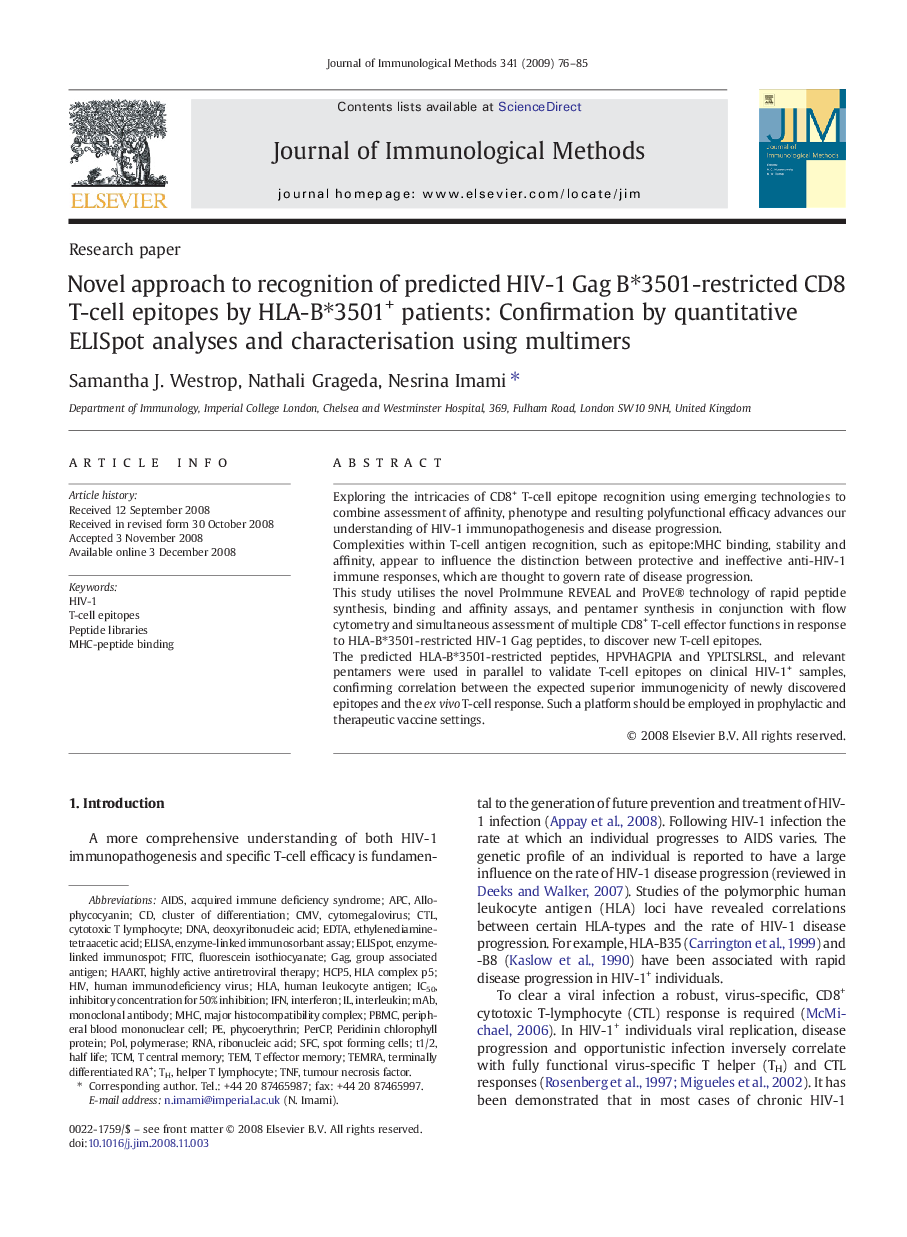| Article ID | Journal | Published Year | Pages | File Type |
|---|---|---|---|---|
| 2088853 | Journal of Immunological Methods | 2009 | 10 Pages |
Exploring the intricacies of CD8+ T-cell epitope recognition using emerging technologies to combine assessment of affinity, phenotype and resulting polyfunctional efficacy advances our understanding of HIV-1 immunopathogenesis and disease progression.Complexities within T-cell antigen recognition, such as epitope:MHC binding, stability and affinity, appear to influence the distinction between protective and ineffective anti-HIV-1 immune responses, which are thought to govern rate of disease progression.This study utilises the novel ProImmune REVEAL and ProVE® technology of rapid peptide synthesis, binding and affinity assays, and pentamer synthesis in conjunction with flow cytometry and simultaneous assessment of multiple CD8+ T-cell effector functions in response to HLA-B⁎3501-restricted HIV-1 Gag peptides, to discover new T-cell epitopes.The predicted HLA-B⁎3501-restricted peptides, HPVHAGPIA and YPLTSLRSL, and relevant pentamers were used in parallel to validate T-cell epitopes on clinical HIV-1+ samples, confirming correlation between the expected superior immunogenicity of newly discovered epitopes and the ex vivo T-cell response. Such a platform should be employed in prophylactic and therapeutic vaccine settings.
